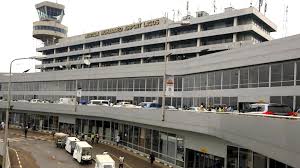BIRD strike, an occasion when a bird hits an aircraft is also a collision between an aircraft and a bird or other wildlife, such as bats or small animals.
It can pose a significant threat to aviation safety. Causes of bird strikes include birds attracted to airport surroundings by things such as food, waste and water; and habitat encroachment whereby airports built near wetlands.
Others are weather conditions which includes like storms, turbulence and aircraft flight path.
The effects of are huge and can be catastrophic. They include engine failure or damage, windshield damage, air frame damage, loss of control and emergency landings or crashes. The consequences of bird strike consist of safety risks to passengers and crew, aircraft damage or loss, flight delays or cancellations.
There are also economic costs in terms of repairs, lost revenue; and environmental concerns like bird habitat disruption.
Aviation experts say Nigerian airports recorded over 93 bird strike incidents in the first half of 2022.
According to them, the Murtala Muhammed Airport (MMA) in Lagos is as a high-risk area for bird strikes with 54 incidents out of 93 bird strike incidents recorded. According to a report from the Federal Airports Authority (FAAN), 134 bird strike incidents occurred in the country between 2015 and 2020.
Recently, Nigeria`s Air Peace airline confirmed that its early morning flight from Abuja to Lagos was forcefully aborted due to a bird strike incident.
A statement issued by the airline’s Head of Corporate Communications, Dr Ejike Ndiulo, informed that Abuja- Lagos flight experienced a bird strike before take-off, prompting a ramp return as a safety measure.
An aircraft engine affected by bird strike (NAN Photo)
“All passengers disembarked normally. We have deployed a replacement aircraft for the affected flight to minimize disruptions and ensure that passengers continue their journeys promptly. “We appeal for the understanding of our valued passengers impacted by this development, as well as those on other flights that may experience delays.
“At Air Peace, we are committed to providing safe, comfortable, and reliable air travel for all our passengers, “he said. Worried by the huge losses incurred by airlines as a result of bird strikes, FAAN said it would acquire “Phonic Bird Wailers “which would help in combating wildlife and bird strikes in the country.
Capt. Muktar Muye, former FAAN Director Airport Operation, said the equipment was already being shipped into the country. Furthermore, FAAN took delivery of bird strike fighting equipment from Canada on October 4, 2024 to support airline operators.
FAAN Managing Director, Mrs Olubunmi Kuku, is confident that the equipment would drastically to promote safety at nation`s airports.
Kuku said that the achievement would ultimately increase Nigeria’s rating in the International Civil Aviation Organisation (ICAO).
According to her, FAAN also received wildlife hazard control equipment from ICAO to enhance safety and mitigate wildlife hazards at various airports in the nation for effective utilisation.
The managing director said this demonstrated FAAN’s commitment toward confronting bird strike incidents and ensuring airport safety. Kuku, however, said that she regretted the menace of bird strike incidents on the operations of the airline operators in the country. The delivery of bird strike fighting equipment from Canada was well lauded by the Airline Operators of Nigeria (AON) as a proactive measure to address infrastructure challenges at the nation`s airports.
Nevertheless, retired Group Capt. John Ojikutu, an Aviation Security Consultant, told the News Agency of Nigeria (NAN) recently that the nation would not make much progress in air safety unless the nation purged itself of issues that trigger air mishaps.
According to him, FAAN bought the appropriate equipment and recruited specialists from the universities with offices in the FAAN headquarters and at Abuja Airport.
“The sooner the ICAO Audits and the US FAA Audits were completed and Category One was bestowed on us, every ladder that took us up was destroyed including the human capital skills. “The results are not only FAAN, so it is for the Airlines without skilled manpower such as pilot, engineers, in sufficient numbers.
“So it is with NAMA without sufficient Air Traffic Controllers and also in FAAN without sufficient skilled manpower in its various operations and support services.
“The general problems have to do with the oversight and enforcement Authority, NCAA which also lacks skilled manpower for the periodic inspections, checks, audits, survey, among others on all the Aviation Operators, “he said.
According to him, a lot is wrong with the sector and those who performed wonders in 2006 to 2010 for the valued Category One are still very much around to tap from. “Going out and signing various purchasing contract agreements is not the way to progress but begin with the training of skilled manpower in sufficient numbers.
“Nigerian College of Aviation Technology (NCAT), ZARIA has been brought down and we do not have sufficient funds for training abroad. There is work for us all to do, “he said.
He listed aviation operators to include airlines, airports, ground handling services, regulated cargo agents, fuel marketers among others.
Also speaking with NAN, Mr Nuhrudeen Aliyu, the Assistant General Manager, Azman Airline Limited, said that acquiring equipment was different from putting them to use. “The equipment may be active while the personnel that will work with it may be loose, that’s my take, “he said.
Aliyu said regulatory framework for airport wildlife management in Nigeria would reduce yearly loss airlines incur due to bird strike.
Stakeholders say that observing international best practices in bird strike prevention is also important. (NANFeatures)


